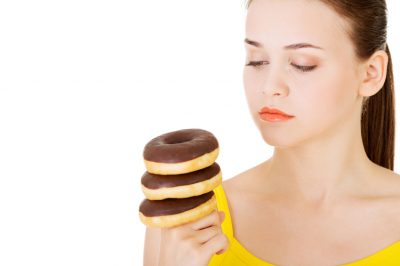Foods to Avoid If You Have Anxiety or Depression
Here’s how to help yourself every day by looking at common items that can bring you down.

Diet plays an enormous part in how we feel, and if you are prone to anxiety or depression then there are definitely things that can help, but also some you may be best to avoid.
Keep it natural to boost your mood
Of course we all know this, but if you have a lot of processed meat, fried food, refined cereals, sweets, pastries, and high-fat dairy products, you’re more likely to be anxious and depressed.
A little won’t hurt but to keep your mood up go for a diet full of whole fibre-rich grains, fruits, vegetables, and fish to help keep you on a more even keel.
The whole fruit, not the juice, is best
The fibre in whole fruit fills you up and slows down how your blood takes in energy. Without that fibrr, you’re just drinking nutritious sugar-water that can quickly hype you up — and bring you down just as fast.
That can leave you hungry and angry — “hangry.” That won’t help anxiety and depression so eat your fruit whole and when thirsty, drink water.
Fizzy soft drinks – a twofold problem
Soft drinks have all of the blood-spiking sugar of fruit juice with none of the nutrition. Sugar-sweetened drinks like colas have a direct link to depression, too. If you crave some fizz then try soda water or sparkling mineral water with a splash of apple juice instead.
The second issue are those ‘diet’ drinks. They don’t contain sugar so you may not have the energy crash that comes with having too much of it, but diet drinks may make you depressed, more so than the non-diet variety would.
Energy drinks
They can cause weird heart rhythms, anxiety, and sleep issues. That’s because it’s not always easy to know the sky-high caffeine levels hidden in ingredients like guarana.
They often have loads of sugar or artificial sweeteners, too so if you need a sugar hit then eat a piece of fruit.
Coffee
If you’re not used to it, the caffeine in it can make you jittery and nervous. It could also mess up your sleep. Neither helps anxiety or depression.
If you have been trying to give up, then sadly caffeine withdrawal can make you feel bad, too. If you think it causes you problems, cut caffeine out of your diet slowly.
If you’re OK with it, or drink decaf, coffee can actually help make you feel less depressed.
Alcohol
When anxious or depressed a drink may seem like a good idea to give you a lift, but even a little can mess up your sleep and that can raise anxiety and cause depression.
However, a drink could calm your nerves and make you more sociable and that can be good for your mental health.
The key is how much so one drink a day for women is the recommended limit.
Check your bread
If it’s made from highly processed white flour then it quickly turns to blood sugar after you eat it. That can cause energy spikes and crashes that can be bad for anxiety and depression.
No need to give up bread, just make sure it is whole grain not white.
‘Light’ salad dressings
Many salad dressings do contain sugar, often listed as “high-fructose corn syrup” and this is a similar situation to diet drinks.
Many get their sweetness from aspartame, an artificial sweetener linked to anxiety and depression. It has many names so check the ingredients or, better yet, make your dressing at home from scratch so you know exactly what is in it.
Soy sauce
This may not seem like much of an issue as how often do you use it? But if you are sensitive to gluten, it can cause anxiety or depression and make you feel sluggish and not at your best.
Gluten is in many foods so if you’re sensitive do read labels and try to steer clear where possible.
Trans fats
Sometimes called “partially hydrogenated oils,” they’re in fried foods, pizza dough, cakes, biscuits, and crackers and have been linked to depression.
Those tempting donuts are not only full of sugar which affects mood, but are full of white flour and trans fats. You may feel the need of a treat, but keep this one to a minimum.
There are ‘good’ fats out there from oily fish, avocado, nuts and olives are some examples and unlike trans fats these can actually lift your mood.
Helpful information:
Anxiety levels seem to rise as we get older, and do seem to be very common at menopause. Helping yourself by having a mood-enhancing diet is a great first step and making sure you have good hormone balance is essential too.
Low levels of progesterone are associated with poor sleep, anxiety and mood swings and for depression a combination cream with both progesterone and oestrogen has been suggested by bioidentical doctors such as Jeffrey Dach, MD.
This article can also give you some more help.


















